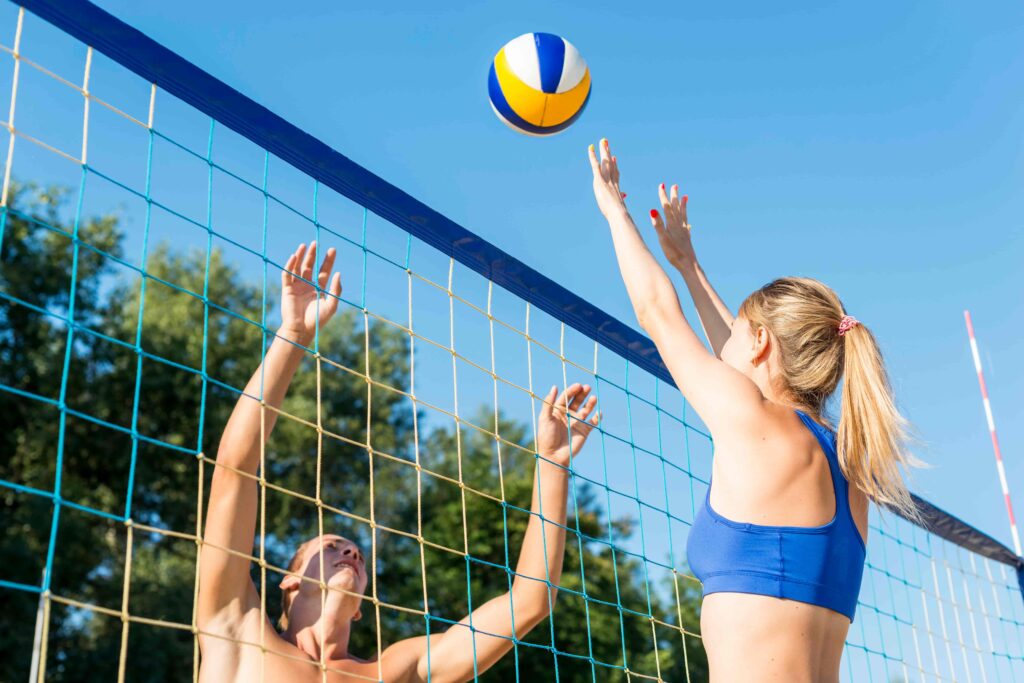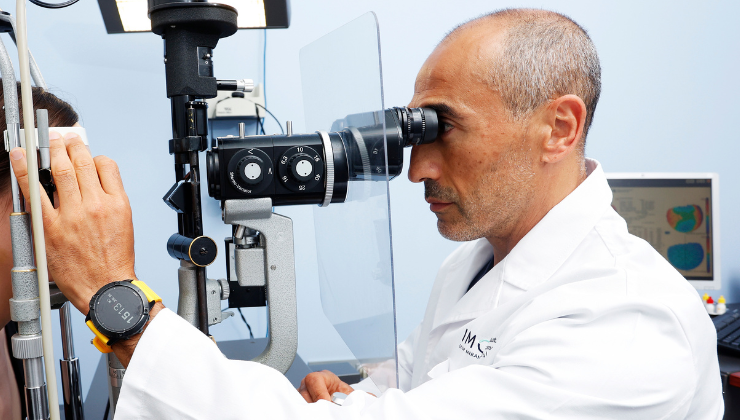
Summer and Sports: Risks to Eye Health and How to Avoid Them
Dr. Carlos Martín, a specialist at IMO Grupo Miranza, warns about the potential damage associated with practicing sports during the summer season and emphasizes the importance of proper eye protection.
Year after year, summer becomes the favorite season for Spaniards to engage in water or outdoor sports, whether individually or as part of a team. Holidays, increased free time, and favorable weather conditions encourage a more active lifestyle, which calls for a series of precautions to protect one of the body’s most sensitive organs: the eyes.
Dr. Carlos Martín explains that “the eyes are especially vulnerable to factors such as ultraviolet radiation from the sun, chlorine in swimming pools, saltwater from the sea, or even blunt trauma from practicing certain sports, all of which become more common in summer. These factors can lead to eye health problems that affect not only a person’s comfort but also their athletic performance, and in some cases, even their long-term vision.”
Some of the warning signs and symptoms include the onset of eye pain, eye redness, light sensitivity, tearing, blurred vision, or the sensation of a foreign body, among others.
Among the activities that can most affect eye health in summer are the following:
- Water sports: The chlorine in swimming pools can cause irritative conjunctivitis affecting the corneal surface, increasing the risk of mild infections that, in some cases, can become severe. In open waters, salt and suspended microorganisms can also lead to inflammation of the conjunctiva, known as irritative conjunctivitis, and other eye discomforts. On this topic, the ophthalmologist adds, “It is extremely important to emphasize that swimming with contact lenses can be very harmful, as water contains bacteria that can lead to serious infections.” These infections, such as Acanthamoeba keratitis, can seriously and permanently compromise visual acuity if not treated promptly.
A common reason for consultation during the summer is pterygium, also known as “surfer’s eye” a conjunctival degeneration involving the abnormal growth of conjunctival tissue over the cornea, caused by excessive sun and wind exposure. This condition can lead to discomfort and eye irritation, and in some cases, may require corrective surgery. - Outdoor sports: In outdoor activities, eye protection is just as important as sun protection for the skin. Direct sun exposure, as well as the reflection of sunlight off surfaces like water or sand, can cause injuries of varying severity. Among the most common conditions are actinic keratitis (inflammation of the cornea caused by solar UV radiation) and cataracts linked to premature aging of the lens. Additionally, benign tumors, and less frequently, malignant tumors, can develop on the eyelids or conjunctiva, associated with cumulative actinic damage (due to prolonged sun exposure without protection).
Also, it’s important not to forget that:
- Mountain sports such as mountaineering or summer skiing increase the risk to eye health due to intense UV radiation reflected by snow and ice. Without proper protection, injuries such as photokeratitis (similar to a “sunburn” on the cornea),pinguecula, pterygium, dry eye, and cataracts may occur.
- Contact or ball sports can cause potentially serious eye trauma, including orbital fractures, corneal or eyelid injuries, traumatic cataracts, or retinal detachment.

Can these injuries be treated?
Each eye injury requires an individualized evaluation by a specialist ophthalmologist. Dr. Martín explains that, depending on the type and severity of the condition, treatment may vary: “In some cases, medication such as eye drops, artificial tears, or anti-inflammatory drops will be sufficient; while in others, surgical intervention may be necessary.” That’s why it is essential to see an ophthalmologist if you experience pain, blurred vision, persistent redness, or any discomfort after practicing sports or engaging in outdoor activities.
Protecting your eyesight is also part of training.
Wearing appropriate sports glasses for impact or contact sports, along with other key tips you can discover by clicking here, will help you enjoy sports without putting your eye health at risk.